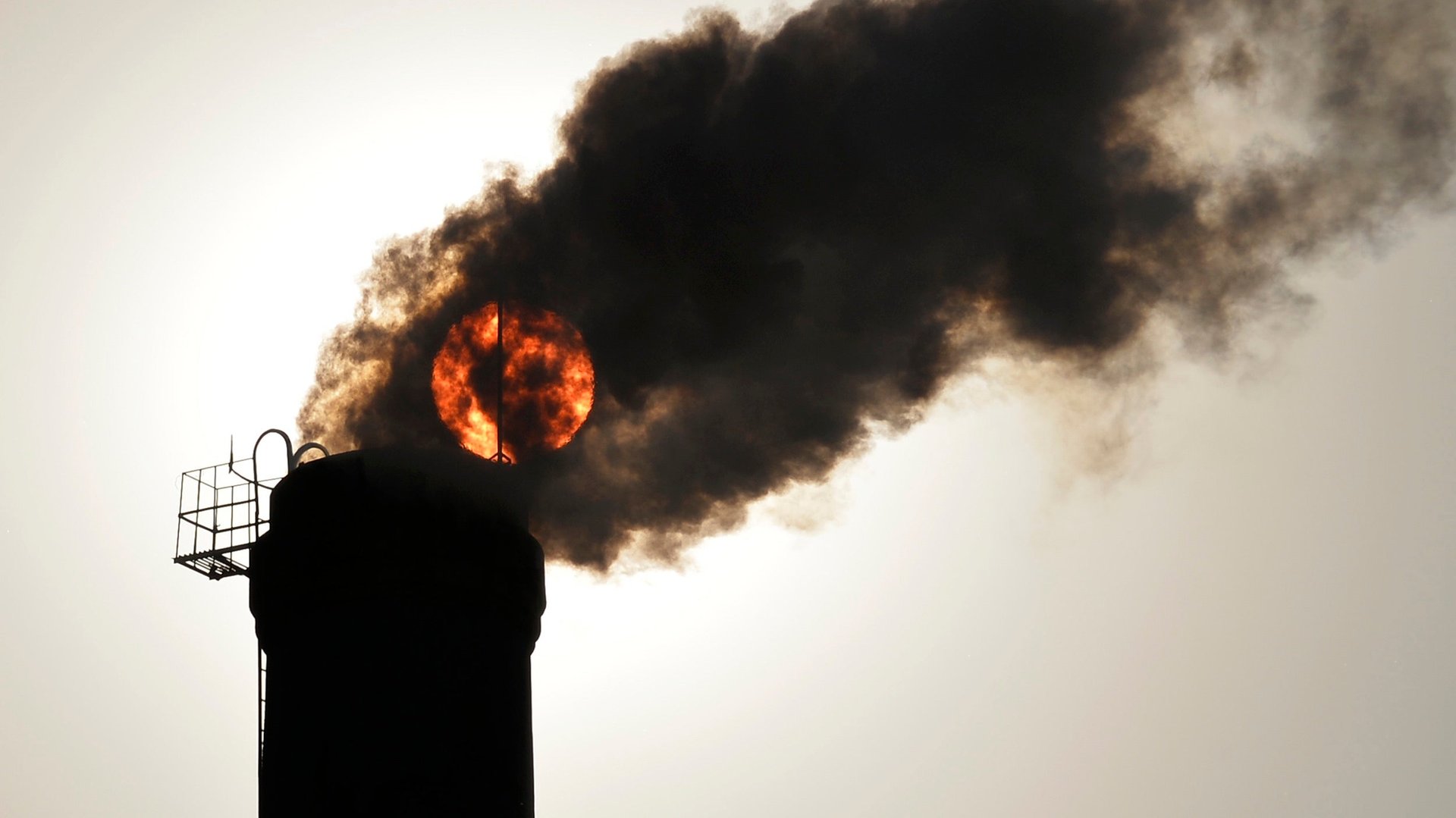The long-awaited peak in China’s carbon emissions may have already happened
China’s rapid industrialization was accompanied by massive carbon emissions, rising year after year. Until now. Maybe.


China’s rapid industrialization was accompanied by massive carbon emissions, rising year after year. Until now. Maybe.
According to research from the London School of Economics, China’s emissions have slowed, and may now be falling in absolute terms, thanks to lower economic growth and the results of past efforts to reduce the carbon intensity of growth.
“It is quite possible that emissions will fall modestly from now on, implying that 2014 was the peak,” write Fergus Green and Nicholas Sterns in a paper due to be published in the journal Climate Policy later this month (pdf). “If emissions do grow above 2014 levels… that growth trajectory is likely to be relatively flat, and a peak would still be highly likely by 2025.”
Emissions data are collected in five-year chunks, hence the ambiguity about the peak:
The reversal has huge implications for the world’s climate. China’s GDP growth averaged 10.5% per year between 2000 and 2010. Heavy industry boomed in that time, gobbling up energy and accounting for an outsize share of the economy. Growth has slowed to 7-8% in recent years, with an official target of 6.5-7% this year.
Less activity will dampen emissions, while at the same time China has aggressively switched from fossil fuels—particularly coal—to cleaner forms of energy. In many cases, this is by necessity—some Chinese cities are now so polluted that dirty air causes an extra 4,000 deaths per day across the country, according to the LSE’s research.
China has been adding vast amounts of of renewable-power capacity to its energy mix. In 2014 alone, China built about 22 gigawatts of hydroelectric capacity, 21 gigawatts of wind power, 11 gigawatts of solar, and over 5 gigawatts of nuclear, the researchers said, citing the China Electricity Council. (Combined, that’s about as much as Australia’s entire grid capacity.) China produced 11.2% of its final energy consumption without fossil fuels by the end of 2014.
The country has promised that its emissions will peak by 2025. It’s an important statement of intent, given that other fast-growing, carbon-heavy countries, like India, have given no such guarantees. And now it turns out that China may have beaten that target by 10 years or more.